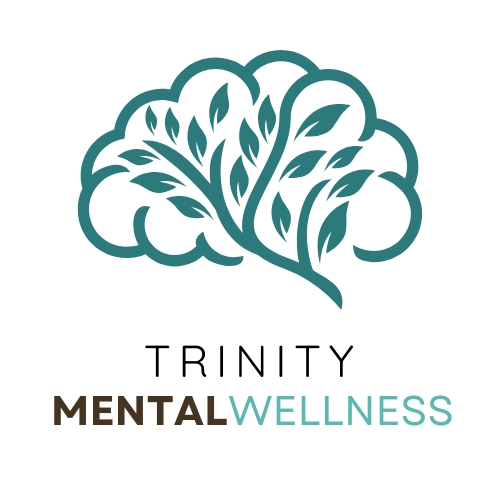Therapy for emotional health can be a powerful tool when emotions feel overwhelming. They often sneak up on you unexpectedly, causing stress, sadness, anxiety, or even anger. If you’ve ever felt like your emotions are spiraling out of control, therapy might be exactly what you need to regain balance and clarity. Let’s take a closer look at how therapy can help you manage your emotions, heal, and restore your sense of well-being.
The Role of Therapy in Emotional Healing: Understanding How Therapy Works
Therapy is all about understanding yourself better and finding ways to cope with emotional challenges. When you sit down with a therapist, you’re given a safe, non-judgmental space where you can explore your feelings.
The therapist listens actively, helping you untangle complex emotions and offering tools to better manage them. Whether it’s past trauma, ongoing stress, or just the ups and downs of everyday life, therapy allows you to unpack your emotions in a healthy way.
Through different therapeutic techniques, you’ll be guided in recognizing patterns in your thinking and behavior. A therapist can help you develop coping mechanisms that allow you to respond to challenges more calmly and thoughtfully. This leads to emotional healing, where you not only feel better, but you also understand your emotions on a deeper level.
And that’s the power of therapy—it’s about growth, self-awareness, and learning how to navigate life’s emotional rollercoaster.

Types of Therapy for Emotional Health: Exploring Different Therapeutic Approaches
Not all therapy is the same. There are several types of therapy, each with its own approach to helping you manage your emotions. Let’s take a look at a few of the most common ones:
- Cognitive Behavioral Therapy (CBT) – This type of therapy focuses on identifying negative thought patterns and replacing them with more positive, realistic ones. If you tend to get stuck in cycles of worry, guilt, or sadness, CBT can help you break free by teaching you how to change your thinking habits.
- Talk Therapy – Sometimes, all you need is someone to talk to. Talk therapy provides a space where you can openly discuss your feelings. A therapist will listen, validate your emotions, and offer guidance without any judgment. This form of therapy can be incredibly beneficial if you feel overwhelmed by the sheer weight of your emotions.
- Dialectical Behavior Therapy (DBT) – DBT combines cognitive-behavioral techniques with mindfulness practices. It’s especially helpful for people who have trouble managing extreme emotions, such as those with borderline personality disorder or high emotional reactivity. DBT teaches you how to accept your feelings while also helping you manage them more effectively.
- Mindfulness-Based Therapy – In this type of therapy, the goal is to help you stay present in the moment. It can be incredibly helpful for managing anxiety or depression. Mindfulness techniques allow you to observe your emotions without judgment, helping you detach from overwhelming feelings and fostering emotional stability.
By understanding these different approaches, you can determine which therapeutic method might work best for you, or even combine them for a more personalized treatment plan.

Therapy for Stress and Anxiety Relief: How Talking It Out Can Ease Emotional Pain
Stress and anxiety can easily take over your life, leaving you feeling drained and hopeless. However, therapy offers a powerful tool for managing these feelings. Talking through your problems with a trained professional can bring relief, clarity, and a sense of control over your emotional world. When you’re struggling with anxiety, it can be difficult to see a way out, but therapy helps you understand the root cause of your stress and find healthy coping mechanisms.
Whether you’re feeling overwhelmed by work, family responsibilities, or personal challenges, a therapist can teach you strategies for managing stress. Techniques like deep breathing, mindfulness, and reframing your thoughts can help you respond to anxiety in a more calm and measured way. Therapy can also help you break the cycle of rumination—those endless loops of negative thinking that only amplify anxiety.
In addition to specific stress-reduction techniques, therapy helps you gain perspective. By expressing your emotions in a safe environment, you give yourself permission to let go of the tension you may be holding inside. And that release, even if temporary, is incredibly therapeutic.
Suggested article: How To Manage Stress in Your Busy Life

When to Seek Therapy for Emotional Health Support: Therapy Could Be Beneficial
It can be tough to know when it’s time to seek professional help for your emotional struggles. If you’ve been wondering whether therapy is right for you, there are several signs to watch for. If you find that your emotions are interfering with your daily life—whether it’s difficulty concentrating at work, struggling to maintain relationships, or feeling overwhelmed by small setbacks—it may be time to talk to someone.
You might also consider therapy if you’ve been feeling stuck or unable to move past a particular emotional issue. This could be grief, a difficult breakup, childhood trauma, or chronic stress. Therapy offers a safe space where you can start healing and move forward.
Remember, you don’t have to wait for a crisis to seek therapy. If you’re simply looking for support, guidance, or a better way to manage your emotions, therapy can be an effective tool for emotional well-being.
Summary – Therapy for Emotional Health is Essential
Therapy can be a game-changer for managing emotions. By understanding how therapy works and exploring different approaches, you can find a path to emotional healing that works for you. Whether you’re dealing with stress, anxiety, or just everyday emotional challenges, therapy provides valuable tools for coping and growing. Don’t wait for emotional distress to take over—if you’re feeling stuck or overwhelmed, therapy can offer the support and guidance you need to regain control of your emotions.
Suggested article: Trinity Health Group: A Vision For Healing, Support, & Hope

